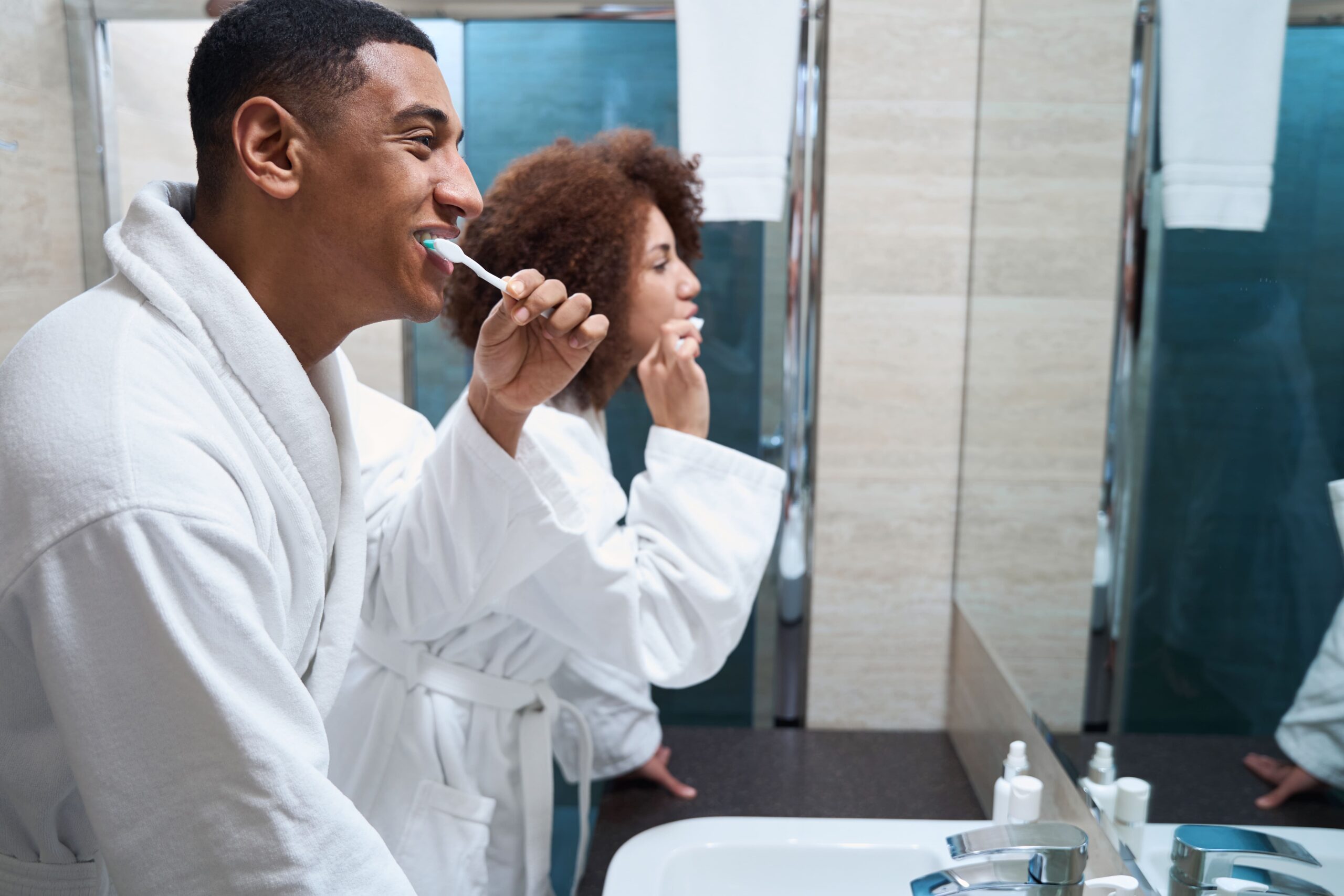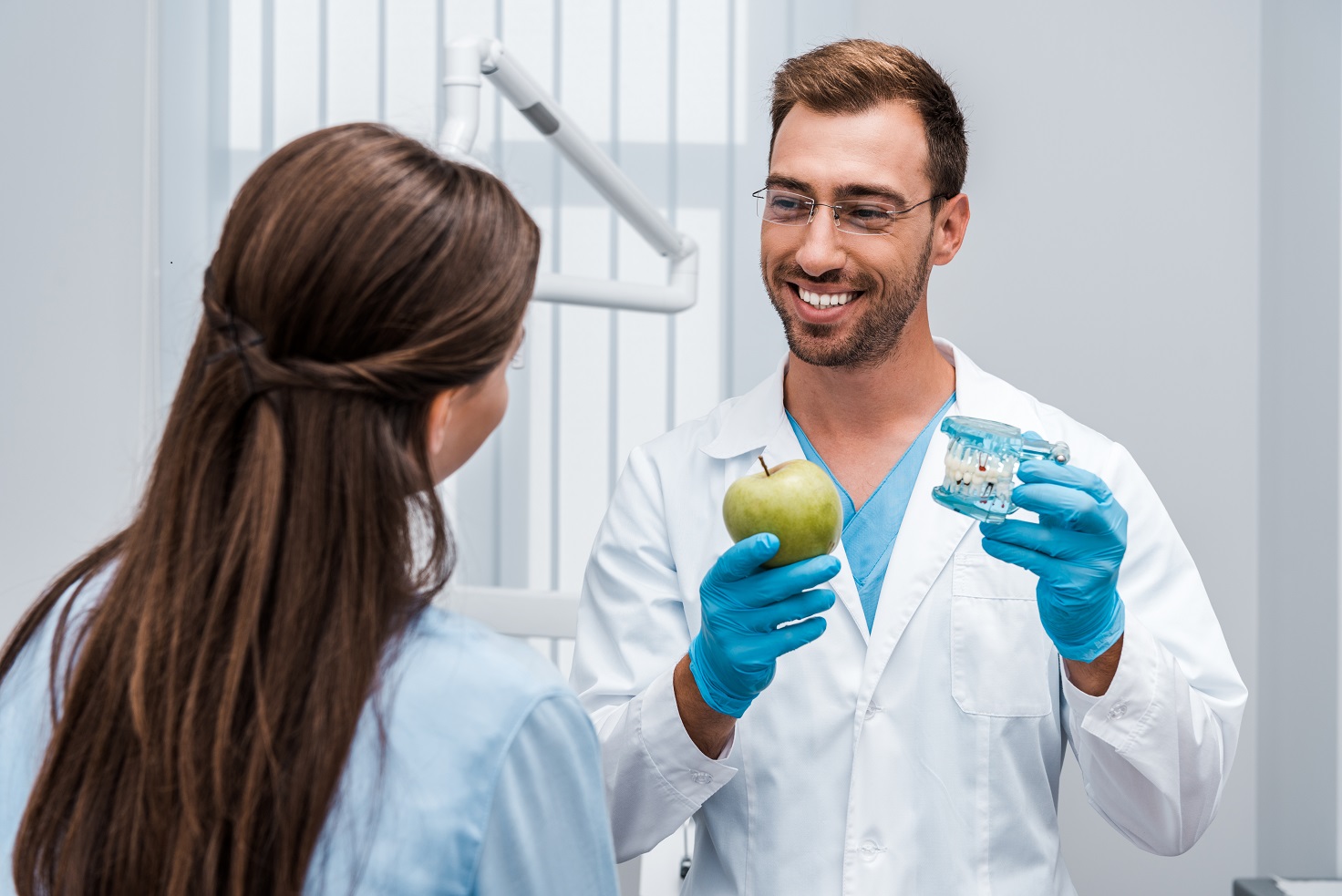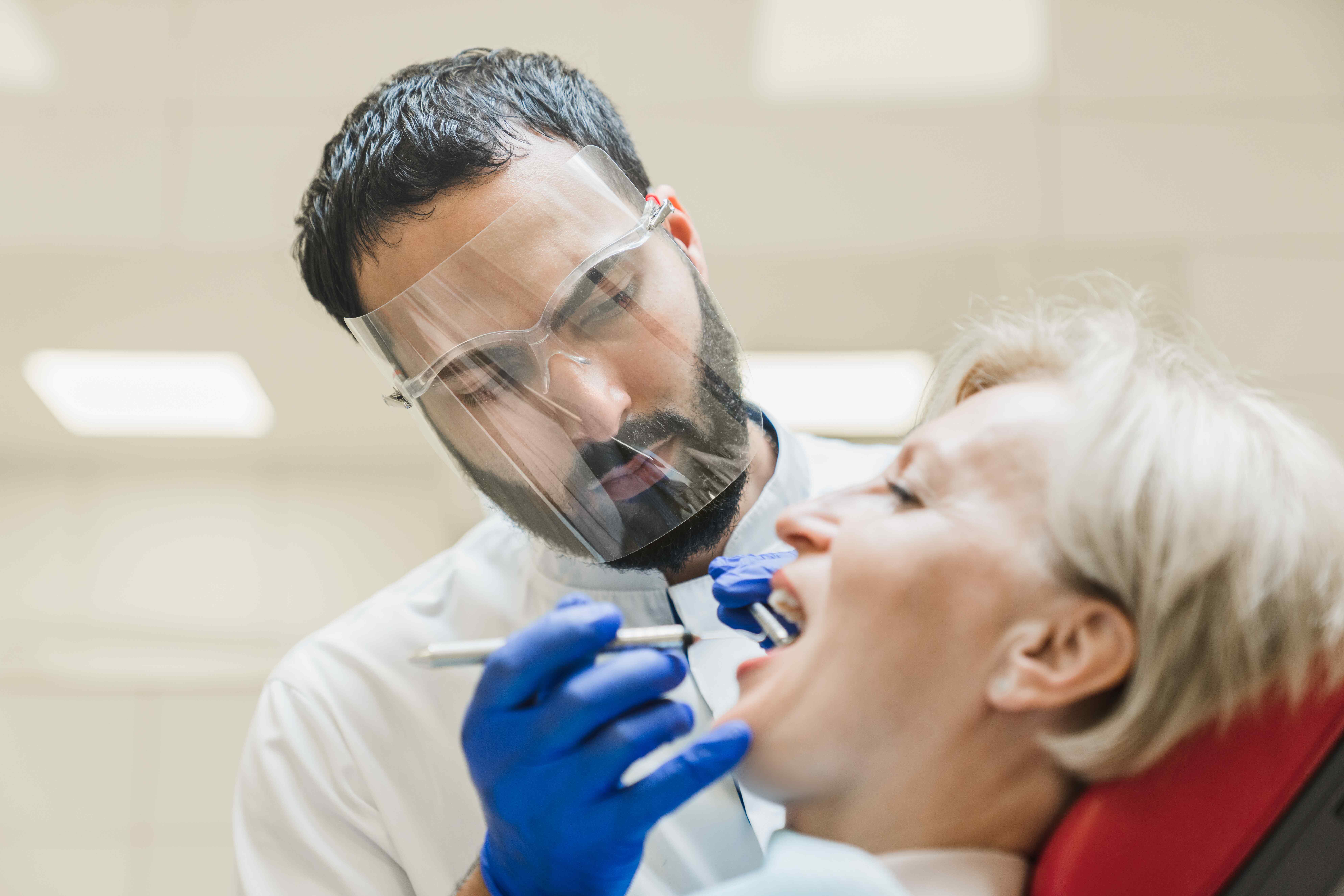Switching to a plant-based or vegetarian diet can offer numerous health benefits—improved heart health, lower…

Common Oral Health Problems Across All Ages
Our oral health is an essential part of our overall well-being, yet it is often neglected or overlooked. As we age, our teeth and gums become more vulnerable to various dental problems. From cavities to dentures, there are common dental issues that can affect people of all ages. Whether you’re a child, a teen, or a senior, maintaining good oral hygiene and regular dental check-ups are crucial in preventing these problems.
In this blog post, we’ll explore the most common dental issues that the dentists at Apple Valley Dental see in our patients, including cavities, tooth decay, gum disease, halitosis, and teeth grinding. We’ll also discuss the causes and treatments for each issue, as well as how they may affect patients with orthodontics or replacement devices such as bridges and dentures. Let’s dive into the world of oral care and learn how to keep our smiles healthy and bright at any age.
Cavities and Tooth Decay: The Common Culprits
Cavities and tooth decay rank among the most common dental issues affecting patients worldwide, spanning all age groups. These conditions begin when the enamel, the hard outer layer of the teeth, is damaged due to acid produced by bacteria in the mouth. This process is often fueled by frequent consumption of sugary foods and drinks, which serve as food for bacteria, leading to the formation of plaque. If plaque is not removed, it can harden into tartar, further exacerbating tooth decay.
The initial stages of cavities may not present noticeable symptoms, making them easy to overlook without professional examination. However, if left untreated, cavities can lead to severe toothache, infection, and even tooth loss. Treatments vary based on the extent of decay but can include fillings, crowns, root canals, or in severe cases, extraction.
Preventative measures are highly effective in combating cavities and tooth decay, emphasizing the significance of brushing twice a day with fluoride toothpaste, flossing daily, limiting sugary snacks, and scheduling regular dental check-ups at Apple Valley Dental. Early detection through routine dental examinations allows for simpler, less invasive treatments, underscoring the critical role of ongoing dental care in maintaining oral health.
Gum Disease: A Hidden Villian
Gum disease, or periodontal disease, starts with bacterial growth in the mouth and may end with tooth loss due to destruction of the tissue that surrounds your teeth. Its earliest stage is called gingivitis and it is characterized by red, swollen gums that may bleed easily during brushing or flossing. If not addressed, gingivitis can escalate to periodontitis, where gums pull away from the teeth, forming spaces (called “pockets”) that become infected. The body’s immune system fights the bacteria as the plaque spreads below the gum line. Bacterial toxins and the body’s natural response to infection start to break down the bone and connective tissue that hold teeth in place. If untreated, the bones, gums, and tissue that support the teeth can be destroyed, potentially leading to the need for tooth removal.
The risk factors for gum disease include smoking, hormonal changes, diabetes, medications that reduce saliva flow, and genetic susceptibility. Treatment ranges from non-surgical therapies that control bacterial growth to surgery to restore supportive tissues. A consistent oral hygiene routine and regular dental checkups at Apple Valley Dental are pivotal in preventing gum disease, highlighting once again the importance of maintaining diligent care in preserving oral health.
Halitosis: Tackling Bad Breath
Halitosis, commonly known as bad breath, is a frequent concern among dental patients, impacting social interactions and self-esteem. Its origins are diverse, ranging from poor oral hygiene that allows food particles to decay in the mouth, to deeper issues such as gum disease and dry mouth. Certain foods, smoking, and alcohol consumption also significantly contribute to halitosis by leaving behind lingering odors or reducing saliva flow, essential for cleaning the mouth naturally.
Addressing halitosis effectively involves a multi-pronged approach: improving daily oral hygiene practices to include thorough brushing, flossing, and the use of an antibacterial mouthwash can eliminate many of the surface causes. For persistent cases, a dental examination is necessary to identify and treat underlying problems like periodontal disease. Your dentist at Apple Valley Dental might also recommend professional cleanings to remove plaque and tartar buildup, or specialized treatments for conditions such as dry mouth. Hydration plays a critical role in managing halitosis by promoting saliva production, as does limiting intake of odor-inducing foods and substances. By understanding and tackling the root causes, individuals can significantly improve their breath quality, enhancing their confidence and overall quality of life.
Bruxism: Getting to The Root of Teeth Grinding
Bruxism, more commonly known as teeth grinding, is a condition often overlooked yet prevalent among many individuals which can lead to significant dental issues if not addressed. While it can occur during the day, it most frequently happens at night, making it difficult for sufferers to recognize their condition without being told by a sleeping partner or a dental professional.
The causes of bruxism are multifaceted, ranging from stress and anxiety to abnormal bite or missing/crooked teeth. Persistent grinding can lead to tooth wear and breakage, sensitivity due to enamel erosion, and even jaw disorders such as TMJ (temporomandibular joint) syndrome.
Management and treatment options vary, including stress reduction techniques, practicing proper jaw alignment, wearing a custom-made mouthguard at night to prevent contact between the upper and lower teeth, and correcting dental misalignments. In some cases, addressing underlying sleep disorders is also necessary. Despite being a common condition, many are unaware of their bruxism until complications arise, highlighting the importance of regular dental check-ups for early detection and intervention.
Special Issues for Patients with Braces, Aligners, or Dentures
Orthodontic treatment, while instrumental in correcting misaligned teeth and improving oral function, introduces specific challenges in maintaining oral health. Patients with braces, retainers, or other orthodontic devices are at an increased risk for common dental issues like cavities and gum disease, primarily due to the difficulty of removing food particles and plaque from around brackets, wires, and bands. It’s imperative for these patients to adopt meticulous oral hygiene practices, including the use of specialized tools such as interdental brushes and floss threaders that are designed to navigate the complexities of orthodontic appliances.
Moreover, orthodontic patients must be diligent in avoiding foods that can damage their devices or become easily trapped, such as hard candies, sticky snacks, and crunchy foods. Regular visits to the orthodontist for adjustments are also crucial moments for professional cleaning around the appliances, ensuring that any areas difficult to reach at home are adequately cared for. Additionally, these appointments provide an opportunity for orthodontists to reinforce proper oral hygiene techniques and monitor the patient’s oral health, ensuring that the journey toward a straighter smile does not come at the expense of overall dental well-being.
Dental Care for Seniors
As we age, our dental care needs become increasingly unique. Seniors face particular challenges, including a higher risk of developing dry mouth, a side effect often brought on by medications common in older adults. Dry mouth significantly reduces saliva production, crucial for neutralizing acids and helping to prevent decay and gum disease. Additionally, wear and tear on teeth from a lifetime of use can expose roots to decay and make teeth more susceptible to damage.
Seniors may also encounter difficulties with manual dexterity, making traditional brushing and flossing routines harder to maintain. It’s important for older adults to explore adaptive aids like electric toothbrushes or floss holders that can make oral care easier. Regular dental visits to Apple Valley Dental are vital for seniors, not just for the maintenance of oral health, but also as preventive screenings for oral cancer, which has a higher incidence rate in older adults. These visits allow for the adjustment of dental care routines to address the evolving needs of seniors, ensuring that dental health remains a priority in the pursuit of a healthy, active lifestyle in one’s later years.
The Vital Importance of Regular Dental Check-Ups
Regular dental check-ups at Apple Valley Dental are a cornerstone of maintaining optimal oral health. These visits allow our dentists to conduct thorough examinations, identify issues before they escalate, and provide professional cleanings that remove plaque and tartar buildup unreachable by daily brushing and flossing alone. Beyond the immediate benefits of a cleaner mouth and early problem detection, these check-ups are opportunities for dentists to assess the effectiveness of a patient’s oral hygiene routine and make necessary adjustments.
For patients with orthodontic devices, dentures, or implants, these appointments are critical for ensuring that these aids are functioning properly and not contributing to additional oral health issues. Furthermore, regular screenings during dental visits can help detect signs of oral cancer, especially important for high-risk groups such as seniors. Ultimately, investing time in dental check-ups is investing in one’s health, potentially saving time, money, and discomfort by preventing the progression of common dental problems.
The team of oral care experts at Apple Valley Dental is here to treat any of these common dental issues, and much more, for patients in the Front Royal, VA area. Contact us today to make an appointment for a consultation. Your dental health and comfort are our priorities.


